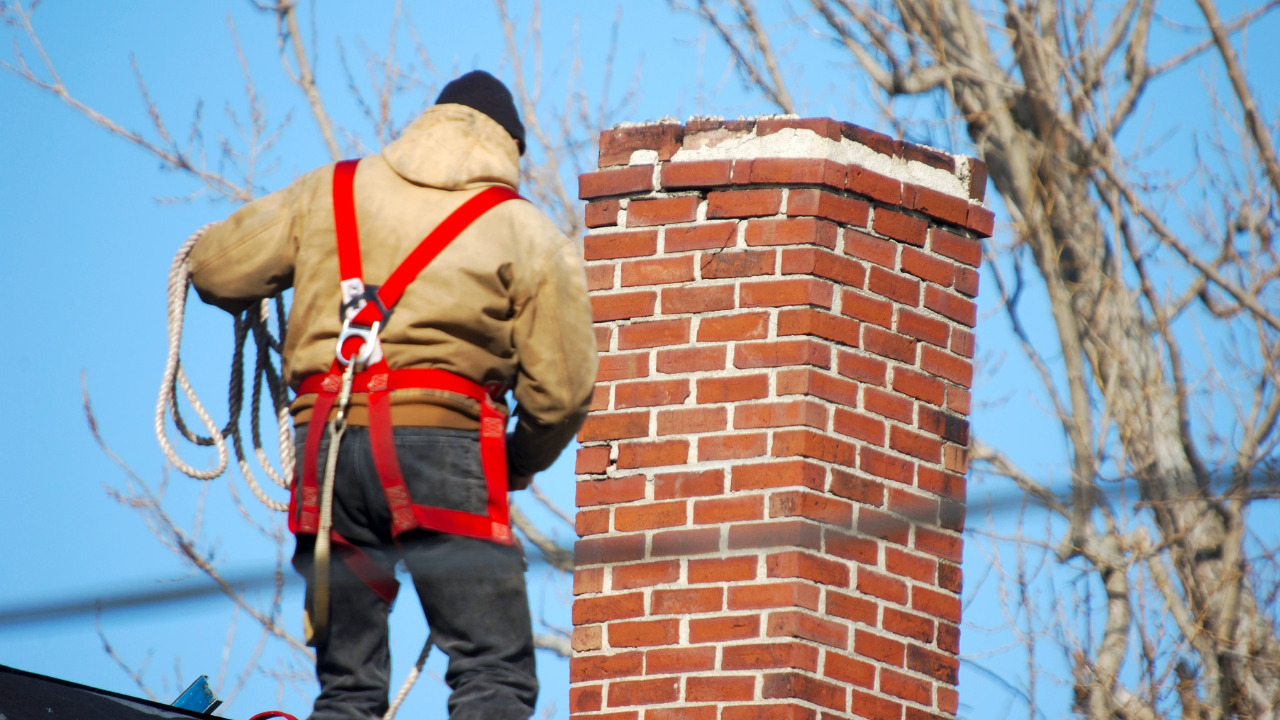Introduction
Your chimney plays a much bigger role in home safety than many homeowners realize. A well-maintained chimney not only ensures proper ventilation but also reduces the risk of fire hazards, carbon monoxide leaks, and energy loss. Without regular care, hidden issues like cracks, creosote buildup, or blockages can put your entire household at risk. That’s why scheduling a chimney inspection is one of the most important steps you can take to protect your home.
Why Chimney Inspections Are Essential
Just like other critical systems in your home, chimneys require periodic checks to function safely and efficiently. During an inspection, professionals look for hidden dangers that aren’t visible to the untrained eye.
Failing to schedule inspections can lead to:
- Dangerous creosote buildup that can ignite fires
- Carbon monoxide leaks that go unnoticed
- Expensive masonry damage from unchecked cracks
- Reduced efficiency of your heating system
When it comes to protecting your family, regular chimney inspection is not optional it’s essential.
Key Features of Professional Chimney Inspection Services
When you hire a trusted company, you get more than just a quick check. Here’s what makes our services stand out:
- Affordable Pricing – Clear, upfront rates with no hidden charges
- Certified Technicians – Trained and licensed professionals for accurate evaluations
- Annual Maintenance Plans – Ongoing care to prevent costly issues
- Fire Safety Assurance – Focus on identifying and reducing fire hazards
- Chimney Cap & Masonry Repairs – Additional protection and structural care
- Real Estate Inspections – Reliable reports for property buyers and sellers
- No-Mess Guarantee – Your home stays as clean as when we arrived
What Happens During a Chimney Inspection
A typical chimney inspection includes several steps to ensure your system is safe and functional:
- Examine interior and exterior masonry for cracks and deterioration
- Check for blockages, nests, or debris inside the flue
- Identify creosote buildup and determine if cleaning is required
- Inspect chimney cap, flashing, and crown for damage
- Test the draft to confirm proper airflow and ventilation
- Assess the condition of the fireplace or wood stove connection
- Provide a detailed report with repair or cleaning recommendations
How Often Should Chimneys Be Inspected?
The National Fire Protection Association (NFPA) recommends that homeowners schedule a chimney inspection at least once per year.
- Annual Inspections – Standard for all homes using fireplaces or stoves
- Frequent Use Homes – Twice per year if the fireplace is a primary heat source
- After Major Events – Following a chimney fire, storm damage, or noticeable performance issues
Regular inspections not only keep your home safe but also extend the life of your chimney.
Benefits of Hiring Certified Chimney Professionals
Hiring a certified chimney sweep provides peace of mind that the job is done right.
- Safety First: Professionals reduce the risk of fires and carbon monoxide leaks
- Efficiency Boost: Properly maintained chimneys improve heating system performance
- Cost Savings: Early detection prevents costly repairs
- Trusted Service: Certified technicians follow industry standards and safety codes
Pricing Table for Chimney Inspection & Services in Apache Junction
| Service Type | Price Range | Notes |
| Basic Chimney Inspection | $100 – $150 | Includes visual and external check |
| Level 2 Chimney Inspection | $200 – $350 | Camera inspection and detailed report |
| Chimney Sweep & Cleaning | $150 – $300 | Removes creosote and blockages |
| Chimney Cap Installation | $120 – $250 | Prevents debris and animal entry |
| Annual Maintenance Plan | $250 – $400/year | Covers inspection and preventative care |
FAQs
Q1: How long does a chimney inspection take?
Most inspections take 45 minutes to 1.5 hours depending on the level of service.
Q2: What’s the difference between a Level 1 and Level 2 inspection?
Level 1 covers visual checks; Level 2 includes video scanning and detailed diagnostics.
Q3: Do I need an inspection if I rarely use my fireplace?
Yes. Even unused chimneys can have blockages or structural damage.
Q4: Can I inspect my chimney myself?
No. Professionals use specialized tools and training to identify risks homeowners often miss.
Q5: When is the best time to schedule a chimney inspection?
Spring or summer is ideal, giving you plenty of time to schedule repairs before winter.
Conclusion
Your chimney is one of the most important safety features in your home, but without regular care, it can become one of the biggest hazards. A professional chimney inspection ensures that your system is efficient, safe, and ready for use year-round.
Don’t wait until problems become emergencies protect your family, your investment, and your peace of mind. Contact us today to book your chimney inspection service in Apache Junction, Arizona, and keep your home safe.
Read more Chimney sweep

